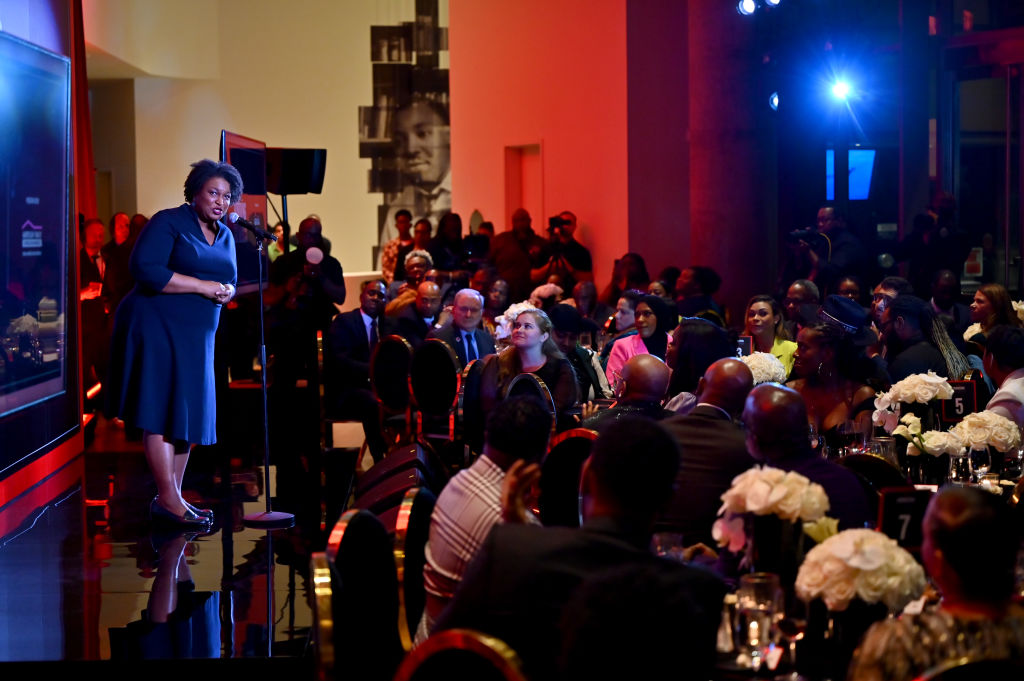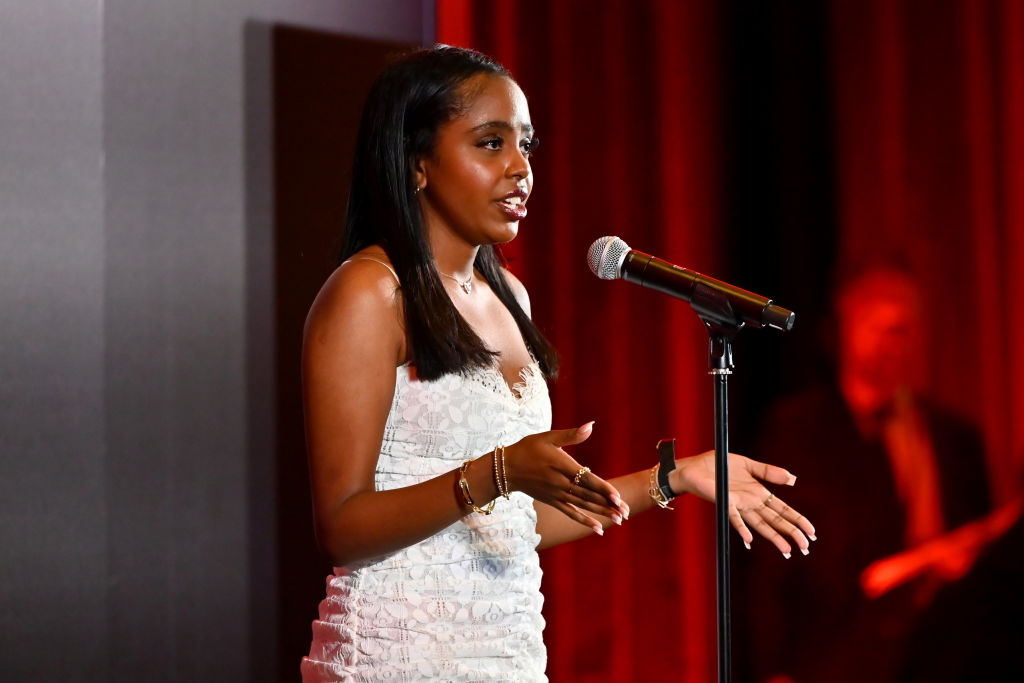More than 100 leaders and visionaries from across industries gathered in Georgia on August 10 for TIME’s Honoring the March: An Impact Family Dinner, an event to commemorate the 60th anniversary of Martin Luther King Jr.’s March on Washington for Jobs and Freedom.
The dinner, held at Atlanta’s National Center for Civil and Human Rights and in partnership with American Family Insurance (AFI), is TIME’s latest remembrance of the historic 1963 civil rights demonstration that took place on the steps of Washington’s Lincoln Memorial. Over the decades, TIME has covered and commemorated the march in many ways, including King’s ‘Man of the Year’ 1964 cover, a 2020 ‘Equality Issue’ that was an homage to King’s legacy, and ‘The March’ virtual reality experience in 2020 that was also made possible through a partnership with AFI.
TIME CEO Jess Sibley said that of all of the subjects of TIME’s century-long focus on influence, it’s hard to think of someone who has had “a more sweeping impact on our past and our present” than King.
Guests on Thursday were greeted with toasts by various notable speakers—from Dr. Bernice A. King, King’s youngest child and the CEO of nonprofit The King Center, to voting rights activist and author Stacey Abrams, the former minority leader of the Georgia house—who all answered a central question: “Why do we still march?”
The event was hosted by actress and activist Yara Shahidi, who in her opening remarks highlighted the presence of Dr. King for carrying on her father’s legacy and Naomi Wadler for being the youngest speaker at the historic March for Our Lives gun reform rally in 2018. “I cannot think of a better way to celebrate the momentous anniversary than sharing space with three generations of awe inspiring Black women whose commitments to equality have allowed us to all join in the dream,” said Shahidi.
Dr. King kicked off the night reminiscing on her father’s vision for a utopian-like “beloved community” and encouraged all to join her in the effort to realize it. “I seek to infuse a new generation of changemakers with the love and power of nonviolence to transform our current climate of chaos.”
Read More: Dr. Bernice A. King Reflects on Her Father’s ‘Blueprint’ for Change
American Family Insurance Group President Telisa Yancy shared how she learned all 1,667 words of King’s March on Washington speech in third-grade. “I was born a few years after he left this earth, but I literally do not remember a time in my life when I did not know his impact on the world.”
When Abrams took the stage, she pointed out that 30 years ago she had spoken at a previous commemoration of the March on Washington and she reminded attendees that King’s fight for change continues. “We must live his legacy by living the March every single day,” she said. “And together we can march towards that dream.”

Read More: Stacey Abrams Wants People to Keep Marching Toward Martin Luther King Jr.’s Dream
Michael Hyter, who leads more than 800 Black employees as President and CEO of The Executive Leadership Council, spoke passionately about how Black leadership is imperative for progress. “We want every young Black person in America to have a fair chance at business success. And so, we march!”
Joy Buolamwini, a digital activist at the MIT Media Lab and the founder of nonprofit Algorithmic Justice League, is fighting against the threat of artificial intelligence undermining progress made in the civil rights movement. “Unchecked and at times unwanted, these systems can determine your partner's job opportunities, your mother's access to healthcare, your child’s access to college, and even lead to your wrongful arrest,” she said. “This is why I march.”
Olympic medalist and activist Ibtihaj Muhammad cited another civil rights activist and athlete, boxer Muhammad Ali, as her inspiration to make an impact in the “historically white sport” of fencing. “A fellow Muslim, [Ali] helped me understand early in my career to lead with the intention to create meaningful change in this world,” she said. “To want for my brothers and sisters what I want for myself.”
Gun violence activist and student Wadler spoke on the adultification of Black women, pointing out that Black girls are nine times more likely to be suspended in school than those around them. “I will continue to march for the rights and recognition of girls who look like me,” the 16-year-old said. “No matter your background or color, every young girl is worthy of the attention and care that will help to shape them into powerful, confident young women.”

Yusuf Salaam, one of “The Exonerated Five” who is now a criminal justice reform activist and New York City council candidate says The March is a symbol of hope and unity. “My life story serves as a stark reminder of the flaws within our justice system,” he said. “It exposes the devastating consequences of racial prejudice, the dire need for reform, and the urgency to uphold the principle that everyone is innocent until proven guilty.”
For Tayari Jones, a professor at Emory University and author of An American Marriage, she marches for her parents that met at an NAACP meeting 62 years ago. “These stories are why I urge everyone to talk to the elders. Record their memories—and not just for history’s sake, but for your own benefit,” she said. “In their names, let’s lace up our boots and march on.”
There were also several live performances throughout the evening: Singer Jonathan Nelson opened with gospel song “Jehovah Sabaoth;” R&B artist Bebe Winans sang his 2005 single “I Have A Dream;” Yannick Lebrun of the esteemed Alvin Ailey American Dance Theater performed a contemporary dance to Nina Simone’s “Wild Is The Wind;” modern singer-songwriter Breland performed a rendition of “A Change Is Gonna Come;” and poet J. Ivy performed a spoken word piece that prompted the crowd to repeat in unison: “Can’t nobody stop you but you.”
More Must-Reads from TIME
- Donald Trump Is TIME's 2024 Person of the Year
- Why We Chose Trump as Person of the Year
- Is Intermittent Fasting Good or Bad for You?
- The 100 Must-Read Books of 2024
- The 20 Best Christmas TV Episodes
- Column: If Optimism Feels Ridiculous Now, Try Hope
- The Future of Climate Action Is Trade Policy
- Merle Bombardieri Is Helping People Make the Baby Decision
Write to Mariah Espada / Atlanta at mariah.espada@time.com